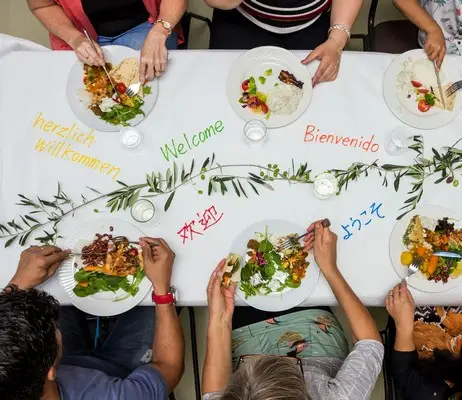Table of Contents
- The Role of Family in Socialization
- Socialization in Nuclear Families
- Socialization in Extended Families
- Socialization in Reconstituted Families
- Socialization in Lone Parent Families
- Socialization in Same-Sex Families
- Conclusion
Family diversity has become a significant area of study within sociology, particularly in the UK context. As societal structures change, so do the forms and functions of families. For A-level Sociology students, understanding how different family forms influence socialization and identity formation is crucial to analysing the broader implications of these transformations. Socialization refers to the process by which individuals, especially children, learn and internalize the norms, values, and behaviours that are considered appropriate in their society. Identity formation, on the other hand, is the development of a person’s sense of self in relation to social, cultural, and familial influences. This article will explore how growing up in various family structures—nuclear, extended, reconstituted, lone parent, and same-sex families—affects both socialization and identity formation in children, using key sociological theories to explain these impacts.
The Role of Family in Socialization
Before delving into specific family forms, it is essential to understand the primary role that families play in socialization. Families are often described as the primary agents of socialization, meaning that they are the first and most influential social environment that individuals encounter. Within the family, children learn language, norms, values, and the rules of behaviour that will shape their interactions with the outside world. Through this process, children also begin to form their identities, learning who they are in relation to their family members and society.
Functionalist theorists like Talcott Parsons have long argued that families serve essential functions in the socialization of children. According to Parsons, the family is responsible for the primary socialization of children, teaching them the norms and values necessary for societal cohesion. In a traditional nuclear family, this process is clear-cut: parents model appropriate behaviour, and children learn through observation and reinforcement. However, as family structures diversify, the dynamics of socialization can vary significantly depending on the family form. These variations have profound implications for how children form their identities.
Socialization in Nuclear Families
The nuclear family, which consists of two parents and their children, has traditionally been seen as the “norm” in British society. In this family structure, socialization processes are typically well-defined, with both parents often playing complementary roles. For example, parents in nuclear families may divide tasks along gendered lines, with fathers traditionally being seen as breadwinners and mothers as primary caregivers. While these roles are increasingly fluid, the division of labour in nuclear families has historically provided children with clear models of gender roles and expectations.
Children raised in nuclear families may experience a strong sense of identity rooted in the stability and continuity of their family structure. They often have the opportunity to form deep bonds with both parents, leading to a sense of emotional security that fosters healthy identity formation. However, some sociologists argue that the traditional nuclear family can also impose rigid gender norms, which might limit children’s exploration of alternative identities. Feminist theorists have been particularly critical of the nuclear family for perpetuating patriarchal norms that reinforce gender inequalities, suggesting that this can influence how children see themselves in relation to their gender roles.
Socialization in Extended Families
In contrast to nuclear families, extended families include not only parents and their children but also other relatives, such as grandparents, aunts, uncles, and cousins. Extended families are more common in certain ethnic and cultural communities within the UK, particularly among Asian and Afro-Caribbean families. The presence of multiple generations and relatives in the household can create a more complex socialization environment, where children learn from a wider range of role models and perspectives.
Children growing up in extended families may develop a strong sense of collective identity, as they are often taught to prioritize family loyalty and group cohesion over individualism. This can lead to a sense of belonging and connectedness, which is beneficial for identity formation. Moreover, the presence of multiple caregivers can provide children with a more diverse understanding of social roles and relationships. However, the downside of growing up in an extended family may be the pressure to conform to traditional family expectations, which can sometimes restrict personal identity exploration.
From a Marxist perspective, extended families can be seen as a response to economic pressures, especially in working-class communities. The pooling of resources and shared responsibilities among family members can help families cope with financial constraints, but it can also reinforce class-based inequalities. Children in extended families may internalize the norms and values of their socio-economic class more strongly, which can shape their identity in ways that reflect their family’s position within the class system.
Socialization in Reconstituted Families
Reconstituted families, also known as blended families, occur when one or both parents have children from previous relationships and form a new family unit. This type of family structure has become increasingly common in the UK due to rising divorce rates and remarriage. Reconstituted families present unique challenges and opportunities for socialization and identity formation, as children must navigate relationships with stepparents, stepsiblings, and biological parents.
Get the full article AD FREE. Join now for full access to all premium articles.
View Plans & Subscribe Already a member? Log in.





